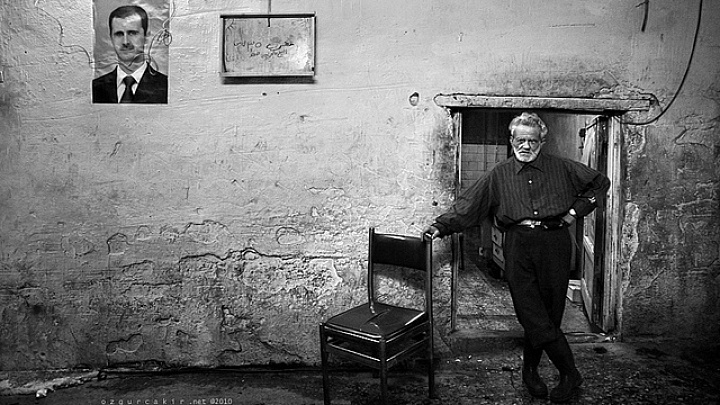
An argument making the rounds is that the al-Assad regime would make the most effective ally for the United States to partner with in the fight against ISIS. This is both laughable and duplicitous. Consider the upshot of the past three years: The Syrian army has been overstretched to the point of near defeat in several areas previously under its thumb. It has relied on crude airpower in the form of barrel bombs in the north, partly as a function of its collective punishment strategy but partly because it lacks reliable intelligence and disciplined ground forces there capable of carrying out more discriminate attacks. Even further away, in places like Deir Ezzor and Raqqa, it has relied on para-statal militias because its own armed forces are stretched so thin. How exactly would Assad’s forces, which cannot even control the suburbs around its capital, much less Syria’s largest city, Aleppo, be a reliable partner in the war against ISIS again?
Whose Boots?
Assad long ago lost “effective control” of his state. Once he gassed his own civilians, he lost the cloak of sovereignty – sham elections aside –as well as the prospect of achieving some form of legitimacy by entering into a coalition with the U.S. The “enemy of your enemy” line of logic, akin to our alliance of convenience with Stalin against Hitler, does not apply here. Assad cannot be presented credibly as a secular lesser of two evils who does not wish our destruction, unlike ISIS, which presumably does. This is about which army we should partner with to repel – we cannot destroy it – ISIS. It’s a question of whose boots do we want on the ground? And we don’t want Assad’s. Heres why:
First, let’s assume Assad is a reliable partner and we can work with him through intermediaries (like Russia, with which we don’t exactly enjoy chummy relations). His goal is hardly aligned with ours. The destruction of ISIS means that he becomes Enemy Number One again, not Islamist radicalism. Assad’s ace in the hole is ISIS’ presence on his soil, which makes him necessary and a useful bulwark against extremism.
Our goal should be an Iraq free of ISIS and a Syria free of Assad. Much blood will be spilled to attain both. But we should not cut a deal with the devil to achieve the former but not the latter.
Second, the type of force Syria employs is not something we can or should endorse. He has shown little distinction between civilians and combatants. He would presumably raze Raqqa the way his father leveled Hama in 1982. The destruction of ISIS is not worth the murder of tens of thousands of civilians and untold destruction. I want my kids, like me, to be able to take in Aleppo’s citadel or the ancient ruins of Palmyra.
Third, let’s say Assad were successful and, backed by an unholy coalition of Hezbollah and Iranian Quds forces, is able to rout ISIS. Would they just sink into the sand? No, they would retreat either into Iraq, further destabilizing Iraqi Kurdistan, or flee across Syria’s porous border with Turkey (or Lebanon). This would risk destabilizing the entire region. However, if U.S.-backed allies defeated the group, through its partners we could better prevent the group from slipping across borders to fight another day.
Moreover, if Assad were able to rout ISIS forces, it would symbolize a huge swing in the war’s momentum. He would go on to crush the rest of what’s left of the disparate insurgent elements in Syria. Buoyed by his conquest of Syria’s north, expect whole neighborhoods of Aleppo to be razed to the ground. Syrian-sponsored terrorist atta
